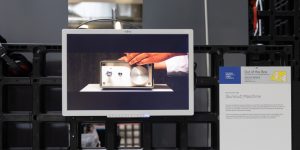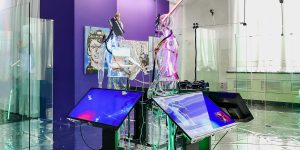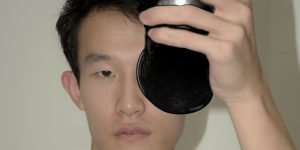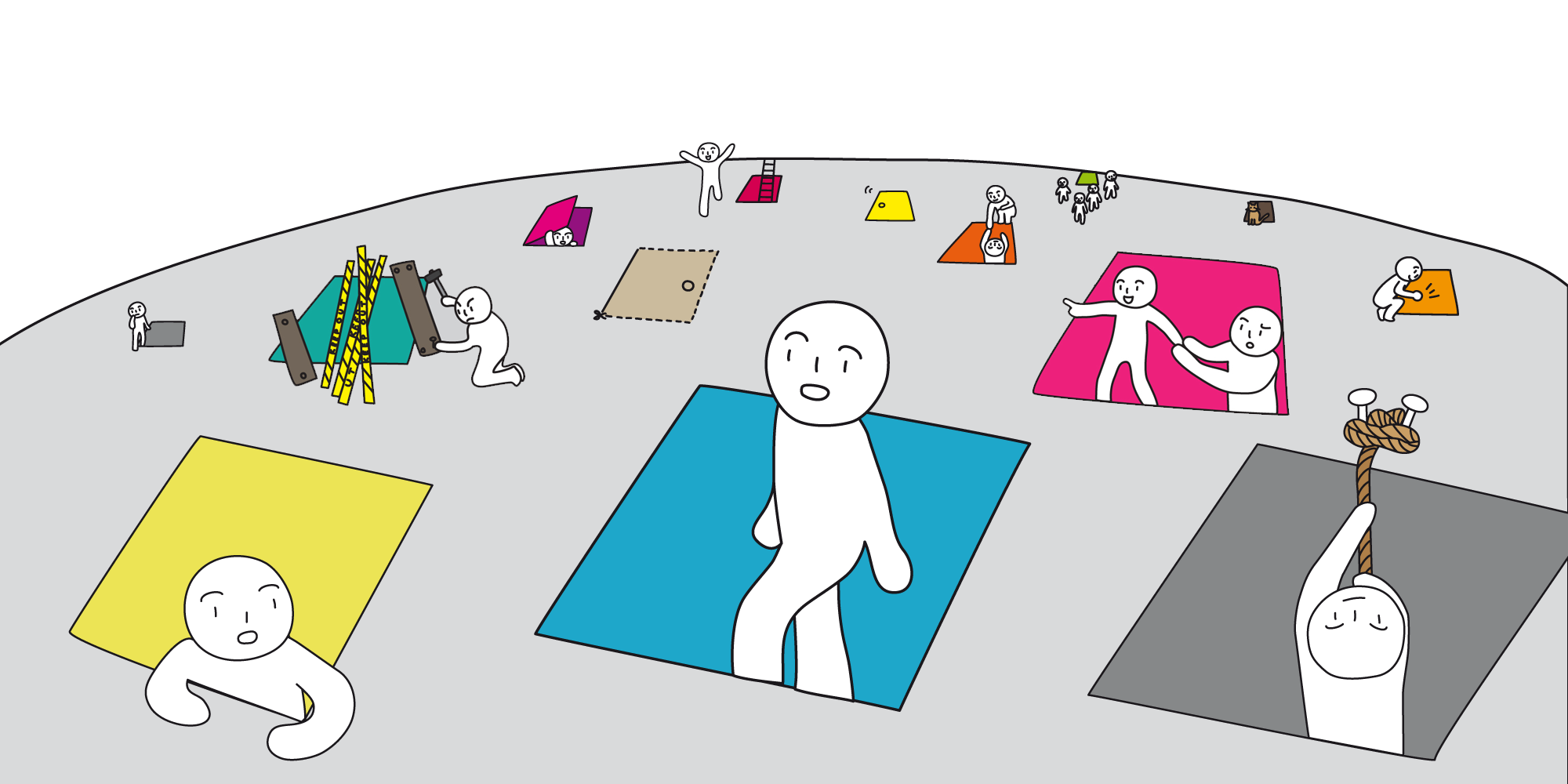society

Surprise Me
Simon Mück (AT)
What if our entire life were being directed? What would happen after 4040 weeks? Would we still have our own thoughts, our own will?

Havoc
Tomáš Červený (CZ/SK)
A mythological comics wall exploring a combination of contemporary CGI technologies with the topics of heroic epic tradition, kitsch, pathos, violence and mythology. What is “violence”? What is “justice”? What does it mean to be a “hero” and what is the hero’s mission in society? These are the questions the author raises in his digital tapestry Havoc.

The Generative Adversarial Network
Wesley Lee Yang (BR)
Democratization of technology and information has not been the means of liberation and empowerment as it could have been. As described and discussed by the Frankfurt School of Critical Theory, these developments have been co-opted to become mostly a means of commercial exploitation. These manipulation processes have moved from mass media to the internet and to the smart devices that are pervasive in our lives. Even when we don’t want them, it is impractical to function in society without owning and operating them. Adding insult to injury, not only are we exchanging our privacy, freedom and the health of our planet to devices that bring us convenience and comfort, but also doing it to have access to useless features, many of which create new problems for us—so that we will need or want the next “innovation.”

[burnout] Maschine
Max Kullmann (DE)
The [burnout] Maschine was designed to prevent individuals (who are part of an increasingly stressed society despite diminishing physical work) from burning out by taking on this exclusively human inadequacy. At the same time, the relationship between man and machine is questioned.

Mezza: Archivo Liberado
Gonzalo Mezza (CL), Sebastián Vidal Valenzuela (CL)
Mezza: Archivo Liberado reviews, in the eyes of a media art pioneer, the initial processes of technological implementation in Chilean art. By a selection of documents and works, the exhibition offers a revisionist view, presented as an exercise in media archeology, exploring one’s own history (of middle age) under different layers through a body of work that progressively models and anticipates important conflicts of today’s society.

Anti Conductor
Ryo Kishi (JP)
Anti Conductor embraces the beauty of struggles. In our society, individuals tend to go with the flow of their environment. It’s human nature because it’s easier to survive. But it’s also monotonous and boring. If no one tries to go against the flow, nothing is going to change. The image of an individual struggling in the flow is full of power and energy, even if their efforts might not pay off.
PRESSURE
Julian Pixel Schmiederer (AT), Gregor Franz (AT), Johannes Rass (AT), Lara Rabitsch (AT)
The movie is a mirror of modern society where uniqueness is demonized, where striving for freedom is something uncommon and where chasing your dreams is not cool anymore. In a society like this it´s hard for people to identify themselves, because we are taught not to be different. We are always trying to push our psychological limits to the edge, just to do what others think is good for us. The film is dealing with these issues and looks at them from an artistic perspective.

Tea Session: Laboratory of the Future
Panel Discussion
What is the role of the laboratory in the 21st century? This panel discussion will take a closer look at the constellations and methodologies that form the modern-day laboratory, spanning from scientific research to the Art Thinking methods so frequently employed within the Ars Electronica Futurelab itself. Working at the nexus of art, technology and society, Ars Electronica’s very own atelier and laboratory will be the starting point for a discussion on contemporary art and research practices both within and beyond the Ars Electronica ecosystem.

ARTificial Banality, The Faking of Looking, and Alchemical Gaming
Baoyang Chen (CN)
This project explores the ontological dichotomies among us, technology and society by again questioning if machine can think. A brain in the vat craves to be awakened.

Peer
Liu Kexu (CN), Ye YiChen (CN), Zheng Jiang (CN), Dong Geng (CN), Wenjie Liang (CN)
Peer is a work based on exploration, which uses symbolic snooping movements to explore unusual images in the real world. By looking through a tubular structure, the undefined view causes people’s desire to snoop. The mechanical structure inside the black box rotates the screen to the corresponding location based on the visitor’s position. At the same time, the film images of the six pipelines share the same theme: the multifaceted nature of human beings in society.


